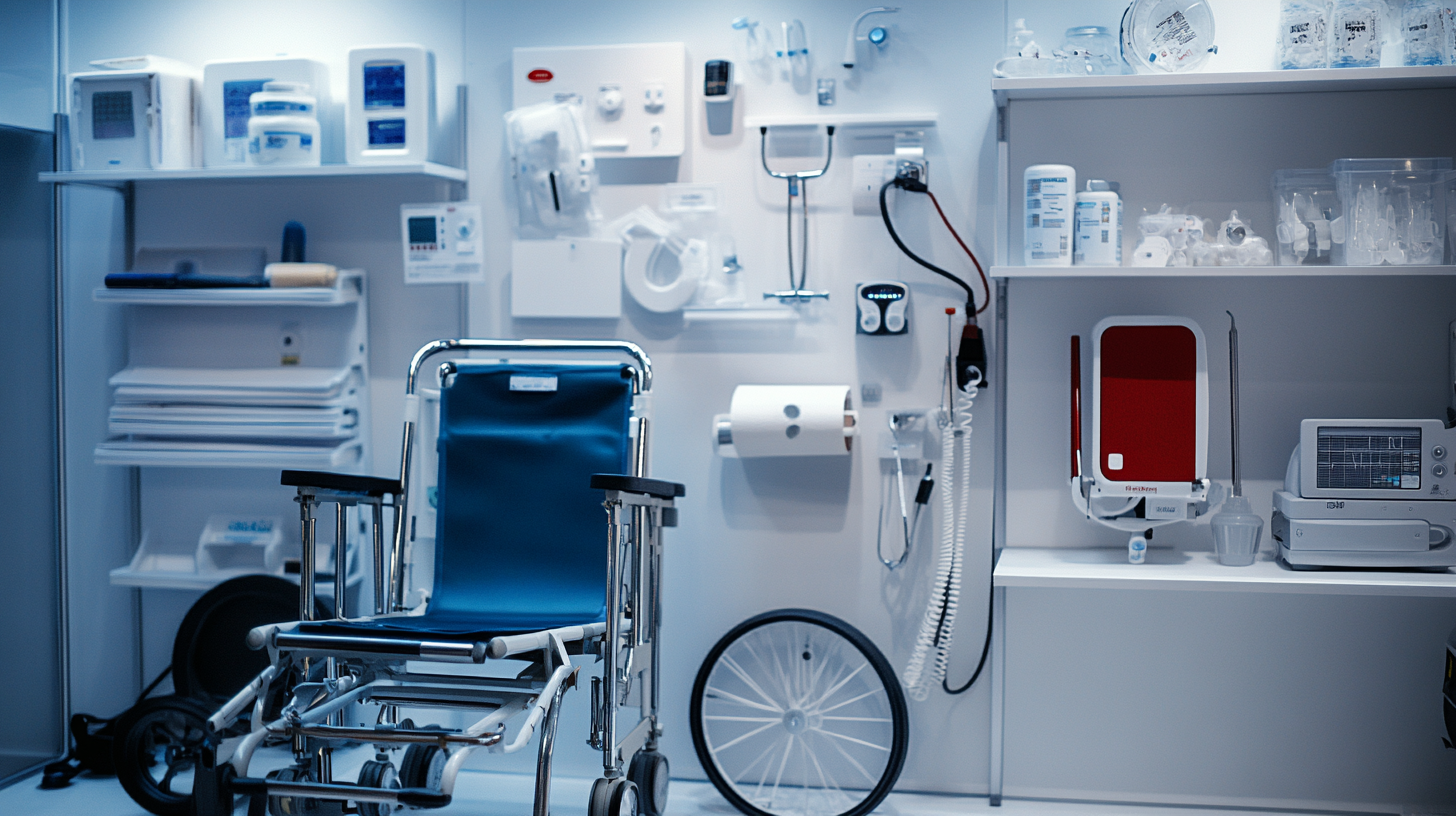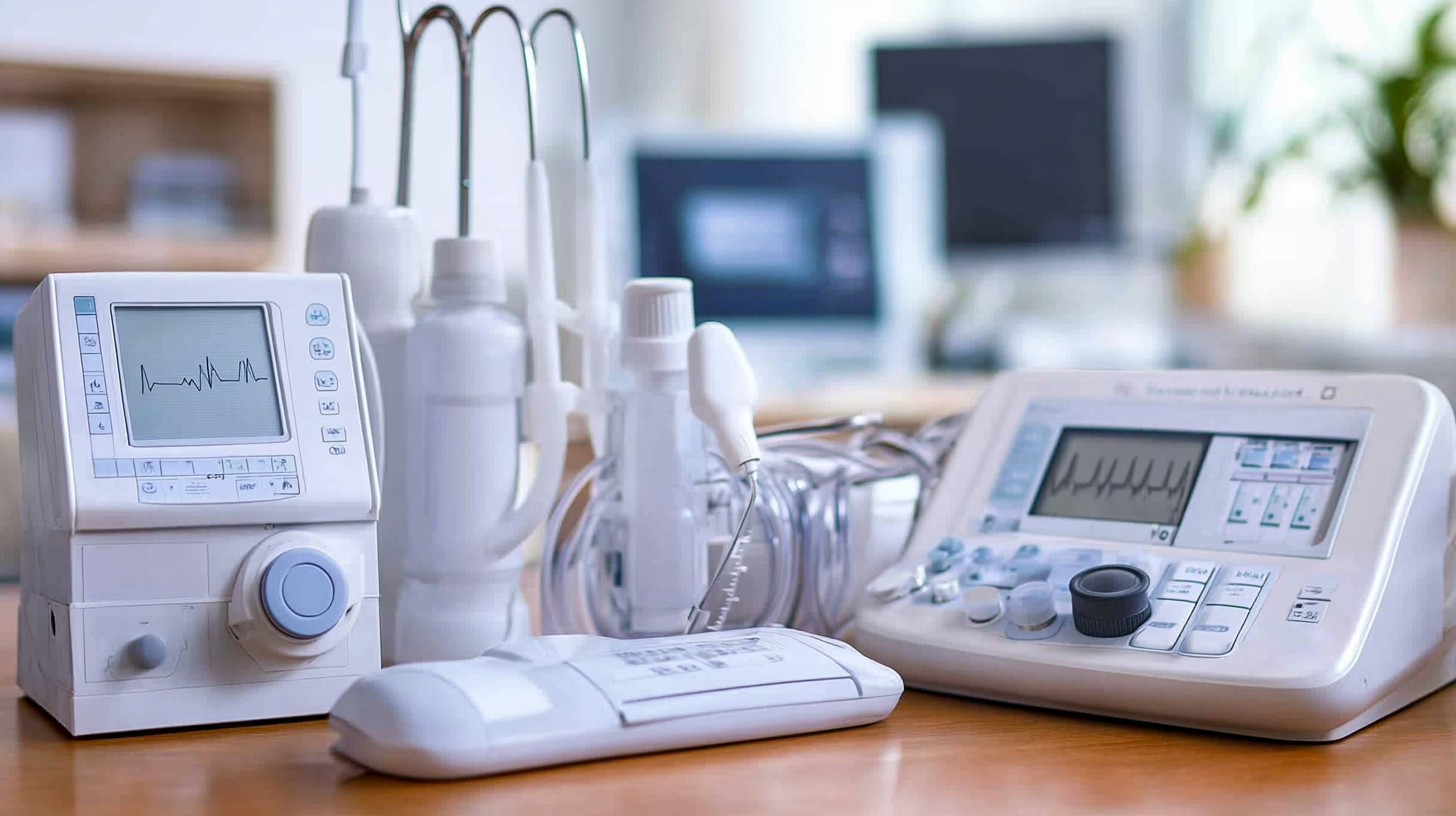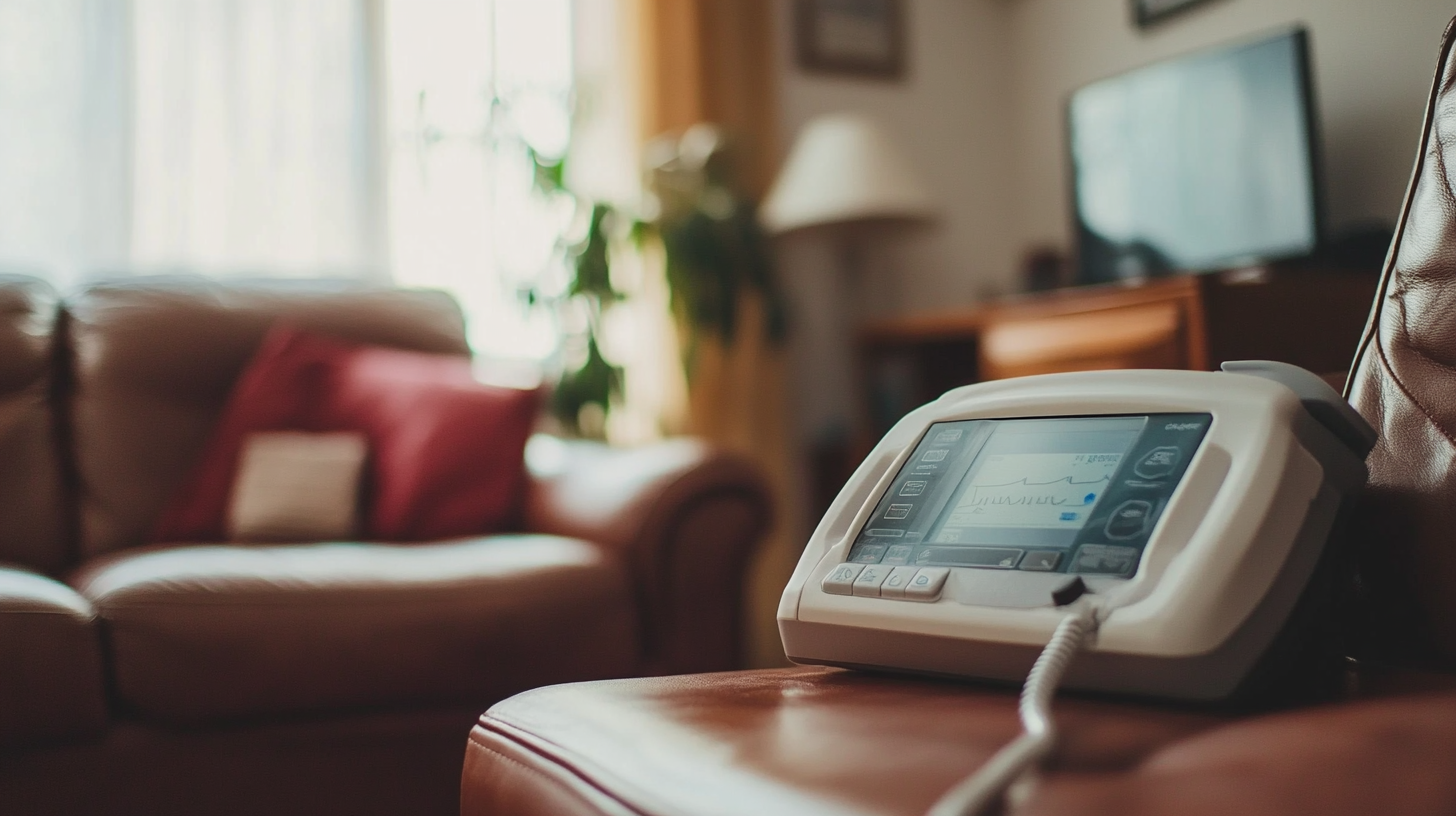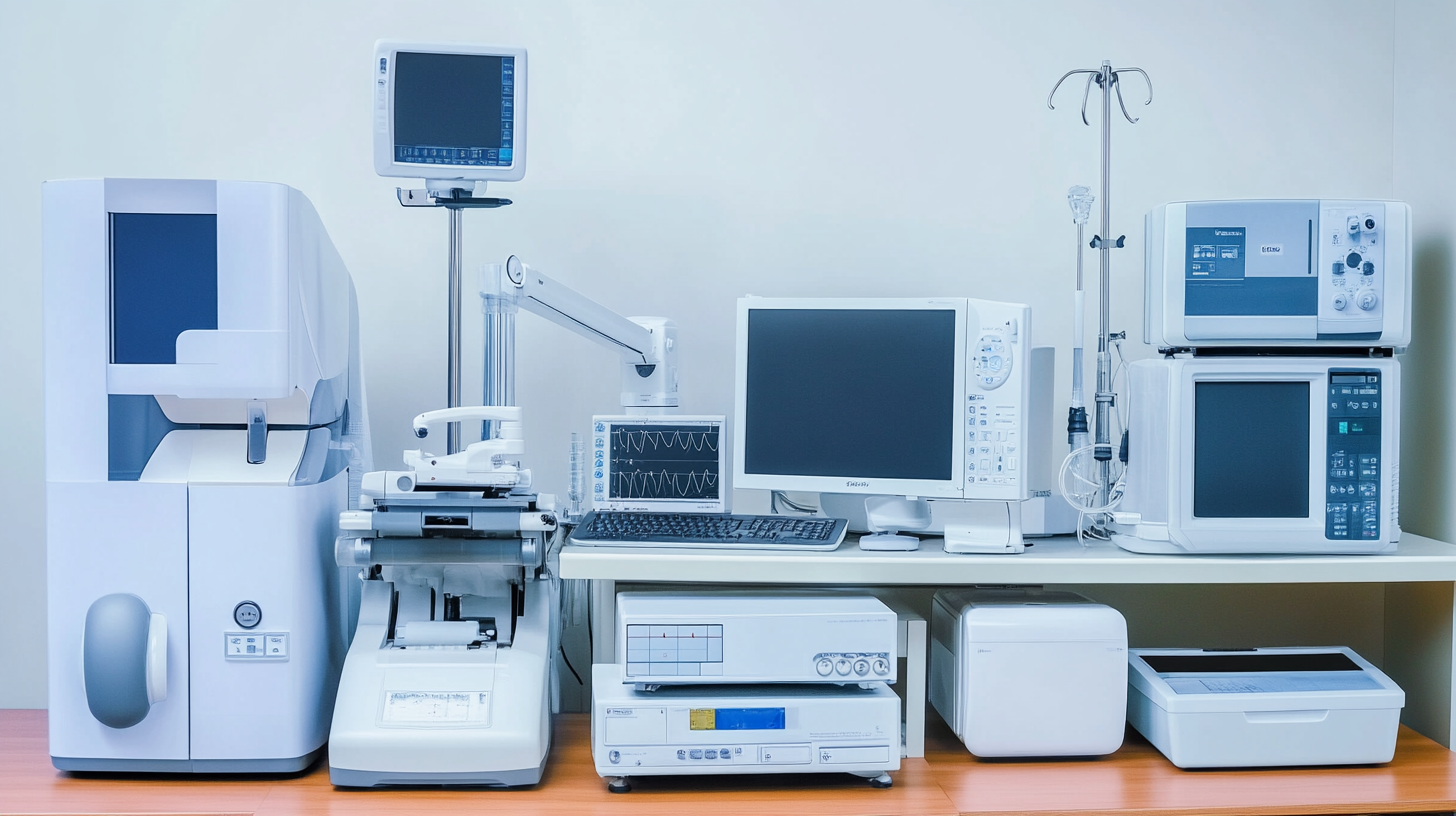How to Choose the Best Home Medical Equipment for Your Needs
In recent years, the demand for Home Medical equipment has significantly increased, driven by a growing aging population and the rising prevalence of chronic diseases. According to a report by Grand View Research, the global home medical equipment market was valued at approximately $37 billion in 2021 and is expected to expand at a compound annual growth rate (CAGR) of 7.4% from 2022 to 2030. This surge underscores the critical role that home medical devices play in enhancing patient care and promoting independence for those managing health conditions from the comfort of their homes.
Choosing the right Home Medical equipment can be a daunting task for both patients and caregivers. With countless options available, ranging from mobility aids to respiratory devices, understanding personal needs and preferences is paramount to making informed decisions. A comprehensive study by the National Institutes of Health highlights that proper use of Home Medical equipment can lead to improved health outcomes and reduced hospital readmissions. As we delve into the process of selecting the best home medical equipment, it is essential to consider factors such as functionality, compatibility with existing health conditions, and overall lifestyle, ensuring that individuals can access the best possible care in their own living environment.

Understanding Your Specific Medical Needs
When it comes to selecting home medical equipment, understanding your specific medical needs is crucial. Individuals often find themselves overwhelmed by the variety of products available, from mobility aids to monitoring devices. The key to making the right choice starts with a comprehensive assessment of your health condition. Consult with your healthcare provider to determine which types of equipment are necessary for your daily life and ongoing treatment. This evaluation should consider your diagnosis, physical abilities, and goals for recovery or management of your condition. Once you have a clear understanding of your medical requirements, the next step is to explore the options available. Each piece of equipment serves a purpose, whether it’s enhancing mobility, providing support, or facilitating medication administration. For example, if you have limited mobility, a walker or wheelchair may be essential, while those managing chronic conditions might need devices for monitoring health metrics, like blood pressure monitors or glucose meters. It's important to consider features such as ease of use, comfort, and maintenance needs, as these will greatly impact your quality of life. Furthermore, don't forget to consider the financial aspect when choosing home medical equipment. Check with your insurance provider to see what is covered and look for options that fit your budget. Many suppliers offer rentals or second-hand options, which can be a cost-effective solution. Ultimately, the best equipment is one that aligns with your specific health needs, enhances your independence, and fits seamlessly into your daily routine.

Evaluating the Different Types of Home Medical Equipment
When selecting home medical equipment, it’s essential to consider the specific needs of the user while also evaluating the different types of devices available. Home medical equipment ranges from simple aids like canes and walkers to more complex devices such as nebulizers or blood pressure monitors. Understanding what each category of equipment provides can help users make informed decisions tailored to their circumstances.
The market offers a variety of home medical devices designed for specific applications. For example, mobility aids cater to those needing assistance with movement, while diagnostic tools like glucose meters empower individuals to monitor their health actively. Additionally, smart home medical devices have gained popularity, offering innovative solutions that can track vital signs and share data with healthcare providers remotely. These technological advancements not only enhance convenience but also promote better health management at home.
As the landscape of home medical devices evolves, regulatory frameworks are becoming increasingly stringent. Recent regulations around certain types of devices, such as radiofrequency beauty instruments, highlight the importance of ensuring safety and efficacy in home medical equipment. These measures aim to protect consumers from potential risks while promoting the use of certified devices, ensuring that users have access to reliable and effective medical solutions at home.

Factors to Consider When Selecting Equipment
When selecting home medical equipment, several critical factors should be evaluated to ensure that the chosen items meet individual needs effectively. First and foremost, understanding the specific medical condition is paramount. According to a report by the National Institute of Health, approximately 40% of home medical equipment users require devices tailored to chronic conditions such as diabetes or heart disease. Evaluating the type of equipment necessary for managing these conditions can significantly improve health outcomes.
Another important factor is the quality and durability of the equipment. The Food and Drug Administration (FDA) emphasizes the significance of selecting equipment that meets safety and efficacy standards. Users should look for products that have received FDA approval, as this can help mitigate risks associated with inferior or non-compliant devices. Furthermore, consumer reviews and experiences can provide valuable insights into the equipment's performance and longevity, making it easier to distinguish between high-quality and unreliable options.
Cost considerations also play a vital role in the selection process. Data from the Healthcare Cost and Utilization Project indicates that home medical equipment can vary widely in price, often influenced by brand reputation and features. Patients and caregivers should explore financing options, insurance coverage, and potential assistance programs to help alleviate the financial burden. Ultimately, balancing quality, cost, and compatibility with individual health needs is essential for making an informed decision when choosing home medical equipment.

Assessing Quality and Reliability of Medical Devices
When selecting home medical equipment, assessing the quality and reliability of devices is crucial to ensure their effectiveness and safety. High-quality medical devices must meet rigorous standards and certifications, which often depend on the manufacturer’s commitment to research and development. It is essential to prioritize products that have undergone extensive testing and have proven track records in clinical settings. Look for devices that come with clear documentation and user-friendly instructions, as these factors can significantly influence overall patient experience and outcomes.
Another important aspect is the durability of the equipment. Reliable devices should be constructed from robust materials that can withstand regular use without compromising safety. Consumers should not hesitate to read user reviews and consult with healthcare professionals to gather feedback on the reliability of various products. Additionally, warranty offers and customer service support can provide valuable insight into the manufacturer’s confidence in their product, further indicating the level of quality that can be expected. Ultimately, making informed decisions based on these factors can lead to better health management at home.
Consulting Healthcare Professionals for Personalized Recommendations
When it comes to selecting the best home medical equipment tailored to individual needs, the importance of consulting with healthcare professionals cannot be overstated. These professionals can provide personalized recommendations that take into account not only the medical condition but also the lifestyle and preferences of the user. With healthcare consulting services projected to experience a remarkable growth rate of 9.4% over the next decade, it’s clear that the demand for expert guidance in healthcare choices is increasing. This growth emphasizes the value of professional advice in navigating the vast array of available medical equipment.
Healthcare organizations are acknowledging the necessity of fortifying patient engagement through informed decision-making. As illustrated in a recent Bain & Company survey, consumers are increasingly seeking personalized healthcare experiences, highlighting the importance of specialists in assisting patients. Healthcare consulting services are evolving to meet these needs by integrating advanced technologies that enhance accessibility and patient experience. This approach not only empowers individuals through tailored medical equipment recommendations but also fosters better outcomes overall.
In an era where healthcare innovation is driven by data and technology, the alignment with healthcare professionals becomes even more crucial. Their expertise can guide individuals in choosing equipment that meets both immediate medical necessities and long-term wellness goals. As the healthcare industry evolves, the need for a collaborative relationship between patients and healthcare providers will be key to optimizing health outcomes and ensuring that each individual has access to the best resources available.

